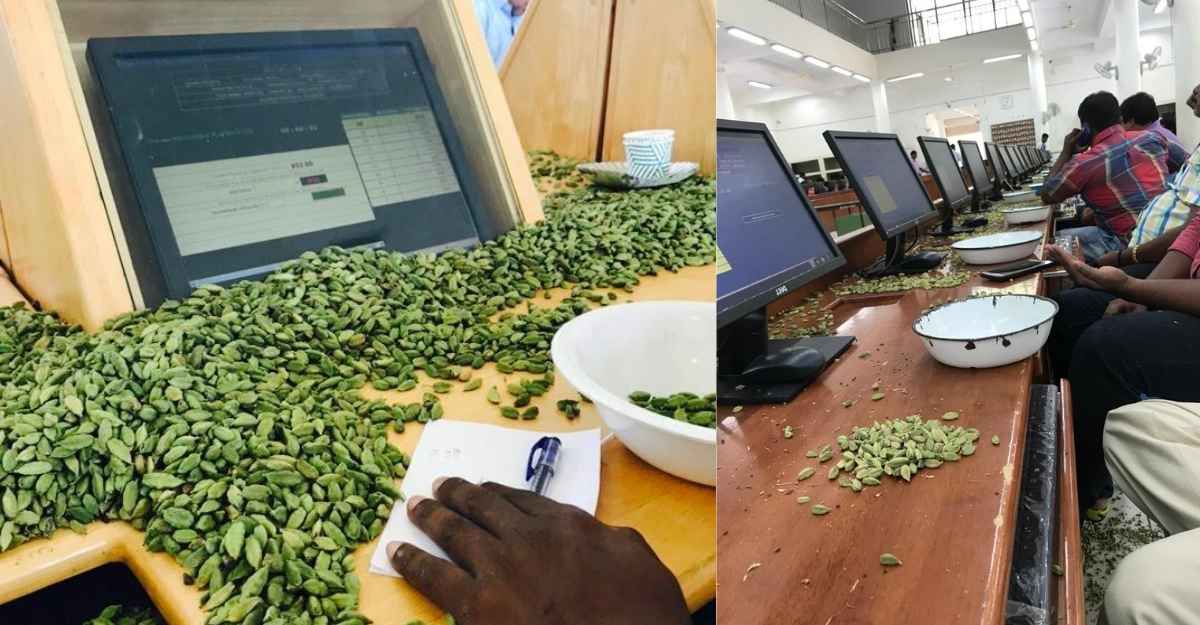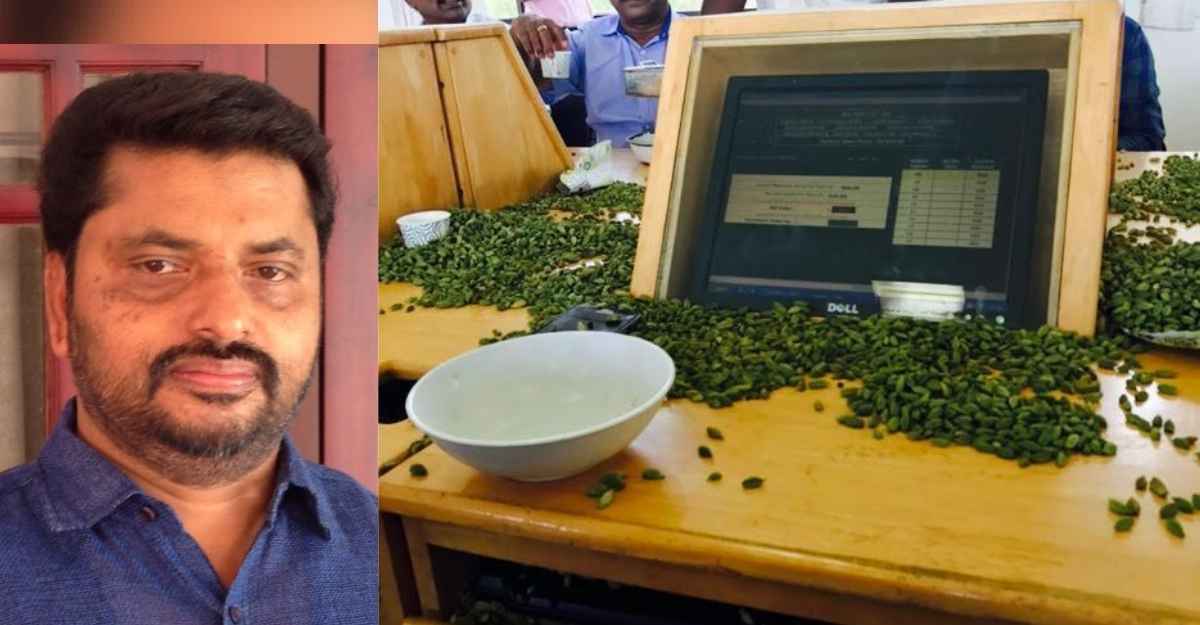Centre's much-criticised new farm laws a blessing in disguise for Kerala's cardamom farmers

Mail This Article
The Centre’s new farm laws, which evoked nationwide protests from farmers and Opposition parties, seem to be helping the cardamom farmers in Kerala's Idukki district.
Of the three legislations, the Farmers' Produce Trade and Commerce (Promotion and Facilitation) Act, 2020 was the biggest point of contention for farmers and political parties alike.
Farmers were wary of sale outside Agriculture Produce Market Committee (APMC)-owned trade areas and the lack of mention of minimum support price.
But the cardamom farmers in Kerala are now finding the law a much-needed prop as, they said, not much help was forthcoming from the Spices Park for auction, especially during the pandemic.
The Vandanmedu Greengold Cardamom Producer’s Company, a producer firm as well as a licensed auctioneer, was the first to start e-auction of cardamom outside a Spices Board facility in the state by utilizing the provisions under the Farm Act 2020 on October 30 and November 6.
Now, the Cardamom Growers’ Association has registered a company called ‘Idukki Progressive Spice Producer Company Limited (IPSPCL)’ and is gearing up to start e-auction by the first week of December. More farmers’ groups are planning to utilize sections 3, 4 and 5 of the Farmers’ Produce Trade and Commerce Act to conduct e-auction outside the Spices Park.

The facilities arranged by the Spices Board at Puttady in Idukki district and Bodinayakanur in Theni district of Tamil Nadu were the only places where cardamom growers and traders can engage in auction till now.
Technically, online auctions are held at Spices Park, but buyers and sellers have to reach the centre to log in and attend it. While auctions are held on alternate days at these centres, the COVID-19 restrictions affected it.
As buyers from Tamil Nadu are the major participants of the auction, restrictions in inter-state travel resulted in the suspension of the auction for months. Unable to sell their produce, the cardamom growers sent petitions to the state agriculture minister and even to the Prime Minister. They sought the use of ENAM (electronic national agriculture marketing) for cardamom, just like other agricultural products.
It was during this time that they decided to explore the possibilities of the Farm Act.
K S Mathew, chairman of VGCPC, said they were able to sell around 50,000 kg of cardamom on two e-auctions held recently. “The average price quoted for the e-auction held at Spices Park on November 6 was Rs 1,358/ kg while that on our e-auction held in the afternoon was Rs 1,400/kg,” he said.
“The only drawback was many buyers wanted to see cardamom samples. So, samples were sent to our centres in Kerala and Tamil Nadu,” he said.
P C Mathew, secretary of the Cardamom Growers’ Association and chairman of IPSPCL, said theirs would be the first collective of farmers to conduct e-auction. “We are in the process of creating a website and app for buyers. Our e-auction will be held in the first week of December. We are expecting more farmers to start e-auction, thereby driving up demand,” he said.
Mathew said money lending by middlemen was a major issue faced by the farmers. “When we start e-auction, we will stop the system of deferred payment which the middlemen are currently engaged in. Usually, the producers get money only 20-22 days after the sale.

As per the norms of the Spices Board, the payment should be done within 10 working days. Instead of payment, the auctioneers will lend money to the producers on a 33% interest. It is a highly lucrative business. We will only deal with buyers who can provide money on time,” he said.
Mathew also said the Spices Board had not been of much help in the conduct of auctions in recent times.
“Usually, there are only 46 terminals for traders and buyers at the Puttady centre and 53 at Bodinayakanur. This will limit the number of participants. Also, the same buyers from Tamil Nadu are attending auctions at both centres. They will know the quantity in advance and would arrange a deal among themselves beforehand. Later, they sell it to buyers in North India for higher prices. We have reached out to sellers in North India and have invited them to attend our auction,” the IPSPCL chairman said.
In future, they will open auction for buyers who prefer smaller quantities.
While most buyers demand physical verification of samples, the IPSPCL is planning to do ‘profiling’ of each sample, which will have details such as size, litre weight, moisture content, colour etc.
Cardamom, which has a higher size of 8 mm, bright green colour and proper moisture content will get the highest price.
The July-February period is considered the peak season. The price of good quality cardamom fell from Rs 4,000 per kg to around Rs 1,500 at the time of COVID due to suspension of auction.
Critics of the private e-auction say the Spices Board ensured security by making bank guarantee and security deposit mandatory for auction licence while the private players could not promise that. As per the new Act, a tribunal chaired by the District Collector must be formed to address grievances in the auction.
(Jisha Surya is an independent journalist based in Thiruvananthapuram)


